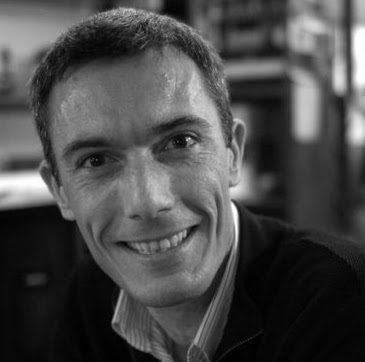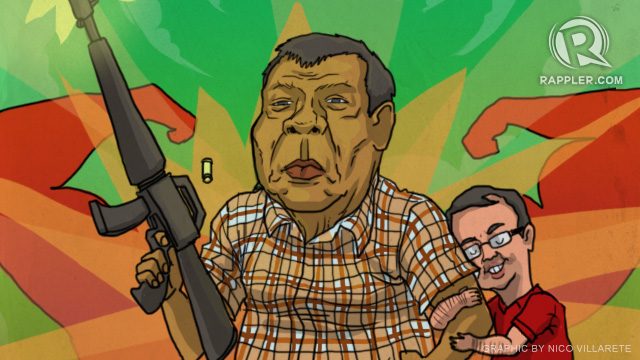SUMMARY
This is AI generated summarization, which may have errors. For context, always refer to the full article.

NOTE: I’m not Filipino, and I’m not pretending to have an absolute knowledge and understanding of what has happened and is currently happening in the Philippines, where I live. However, as a French citizen, I don’t pretend either to have a complete knowledge and understanding of my own country. Whoever we are, we witness events with a certain angle. Just like when you take a picture, a change of perspective will reveal some new details while hiding some others. The views I express here are my views. They’re not the truth, which no one owns, but they certainly are my truth.
Ancient Greece invented democracy a very long time ago. When leadership culture was still at the tribal age everywhere else, they figured that power only makes sense if the people are at the same time its source, its justification, and its destination. They verbalized these principles all democracies now live by, and they designed a political organization based on the very simple idea that no single individual or group should hold the totality of power. Checks and balances. Sirtaki style.
Now, not everyone has the time, the patience, and the willingness to read and understand Plato or Socrates. But fortunately, ancient Greeks not only gave us great philosophers, they also left behind a whole set of stories, a mythology. Stories of gods, heroes, and men. These stories are just that, stories. Hollywood material. But they also carry universal philosophical and moral messages.
One of these stories is about Pandora’s box. Let me sum it up. After Prometheus gave men the power to use fire, despite Zeus’ warnings, the latter decided to punish Prometheus (having him tied up to a mountain and his liver eaten by an eagle for eternity). To punish men, he created a beautiful woman, Pandora, and gave her as a wife to Epimethius, Prometheus’ brother. He also gave them a box, telling them to keep it hidden and never to open it, but not mentioning what was kept inside. Of course, after some time, Pandora could not resist her curiosity any longer and opened the box, unleashing death, famine, diseases, wrath, and despair among men. What this story tells us is that some boxes are better being kept shut, because once they’re opened, no one knows what will go out.
Pandora’s box is often used to warn people about the unexpected and long-term consequences of their actions. The story is supposed to take place little after the gods created the world. Pandora had the excuse of ignorance: how could she have known about the evils she was about to set free when these evils were totally unknown to the world? The result was, by definition, unpredictable. She was, of course, wrong to open the box, but there was no malicious intention.
Opening a Pandora’s box today is a very different matter. History, when we accept to look at it and to learn from it, has taught us a lot about the potentially terrible consequences of actions and decisions initially thought to have a limited effect. When the Archduke Franz Ferdinand of Austria was assassinated in June 1914 in Sarajevo, no one could predict it would lead to World War I two months later. When a man named Adolf Hitler became the leader of the NSDAP party in the early 1920s and published Mein Kampf in 1923, no one could predict it would lead to World War II. When Japan attacked Pearl Harbor in December 1941, their objective was literally to keep the US at bay and have the Pacific area for themselves. It actually had the exact opposite effect.
How does it apply to the current situation in the Philippines? Since June 30, this country has had a new President, a man who was elected on a platform essentially focused on waging an all-out war against crime and corruption. Mr Duterte, in many public occasions, before and after his election, has openly called for the murder of anyone suspected to be involved in drug trafficking, or simply suspected of using drugs. The police have been given the power to shoot to kill. Communist rebels have been asked by the President himself to target drug traffickers in the areas they control. Average citizens have been advised by the same President to kill drug users in their barangays.

Saturday, July 9, marked the 10th day of this administration. At least 119 people have been killed in this “war” because they were suspected, for reasons we will never know about, of using or trafficking drugs. No investigation, no judgment. In any civilized country, this one included, it’s called murder.
I do understand the sense of urgency of the President in dealing with drug trafficking. It is a real plague, and previous administrations probably did not do enough about it. But no problem on this planet was ever solved by killing people. So-called “drug lords” and “pushers” must be identified, arrested, charged, and judged with all the severity of the law. Not killed on the streets when they’re nobodies, and bullied on TV when they’re somebodies. Drug users are not criminals. They need help and care.
Some will remind me that Mr Duterte asked local governments to set up rehabilitation centers. It is a good thing, but I have one problem here. What kind of message are you sending to drug users when the head of state calls for their murder while local authorities try to help them? What are they supposed to do? Run as fast as they can to a rehab center, hoping to avoid bullets on the way?
Back to our Pandora’s box. In politics, a lot is about the vocabulary used by the leaders. When a President repeatedly uses the word “war”, he tells his people there is an enemy. When he repeatedly uses the verb “kill”, he sends his people on the warpath. Are drug traffickers enemies? Of course, they are criminals, and that’s all they are. The choice of words is important here, because what is happening now is potentially the first step into a situation of civil war.
When you start to point at “enemies” within your own people and go to “war” against them, you instill in the population a sort of hysteria, a conviction that the country needs to be “purified” from dangerous or “impure” elements. Today, these so-called enemies are drug traffickers. And tomorrow?
We all hear around us that corrupt politicians should die, that child rapists and murderers should die. Who else then? Activists? Muslims? Chinese? Unproductive people? If you think I am exaggerating, remember 6 months ago. Would you have imagined then that your President would ask you to take a gun and go kill your drug-using neighbor?
Pandora’s box is open. Death and wrath have been set free. However you may try to justify it, violence breeds violence. Do not think that this will stop by magic on the hypothetical day when all drug traffickers and users are gone. That’s not how it works. The President has chosen to use and release the anger and frustration of the people. The only thing he can do now is to decide whom to aim this anger at, until, someday, it aims back at himself. – Rappler.com
Ronan Jegou is a French citizen working as a language teacher in Manila.
Add a comment
How does this make you feel?
There are no comments yet. Add your comment to start the conversation.